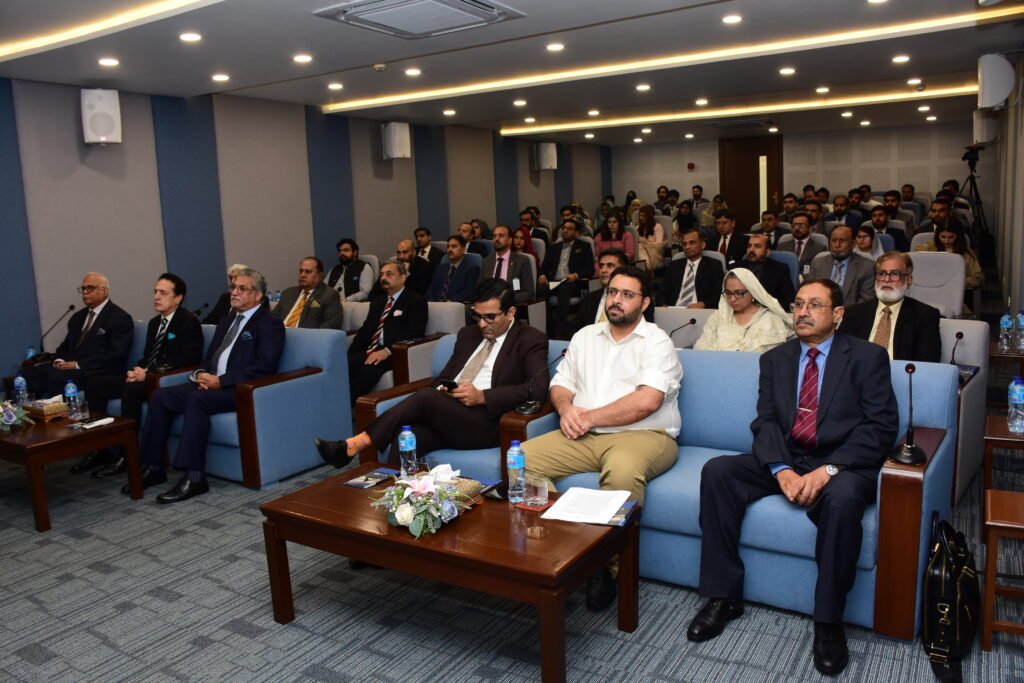
Seminar
Inter-Generational Societal Transformation and Pakistan’s Resilience
About The Event
Pakistan’s history attests to the resilience of its society and state. This strength, rooted in shared values, historical unity, and an indomitable spirit, has kept the nation afloat. However, in the 21st century, this resilience faces a new challenge: the generational divide between Baby Boomers (Digital Immigrants) and Generation Z (Digital Natives).
The generational divide manifests in differing worldviews. Baby Boomers, shaped by the Cold War era, prioritise traditional issues such as foreign policy and national security. In contrast, Generation Z’s perspective, shaped by globalisation and the information age, focuses on navigating a dynamic world with evolving global partnerships and economic priorities.
Social media, a hallmark of the postmodern age, deepens this divide. The relentless flow of information creates echo chambers, fracturing shared narratives and amplifying differences. Misinformation and “fake news” on national security issues further complicate matters. As Generation Z becomes more prominent, their priorities often clash with those of Baby Boomers, leading to “mismatched pluralities” where many feel unheard and disengaged. This discord hinders Pakistan’s ability to address critical issues such as national development, political stability, and social progress.
However, there is hope. Building social resilience is crucial for Pakistan’s future. Generation Z’s youthful energy and digital fluency, combined with the wisdom and experience of the Boomer generation, hold immense potential. To bridge the gap, a “New Narrative for Resilience” needs to be fostered, leveraging the lived experiences of Boomers alongside the fresh perspectives of Generation Z. By harnessing the collective potential of its people, Pakistan can navigate 21st-century challenges. Intergenerational dialogue, understanding, and collaboration between generations are key to building a more resilient future.
Recognising Pakistan’s evolving social landscape and the challenges to national resilience, the Centre for Aerospace & Security Studies (CASS), Lahore, hosted a seminar titled “Inter-Generational Societal Transformation & Pakistan’s Resilience”. The seminar bridged the generational gap and foster a collaborative approach to building a more resilient future for Pakistan.
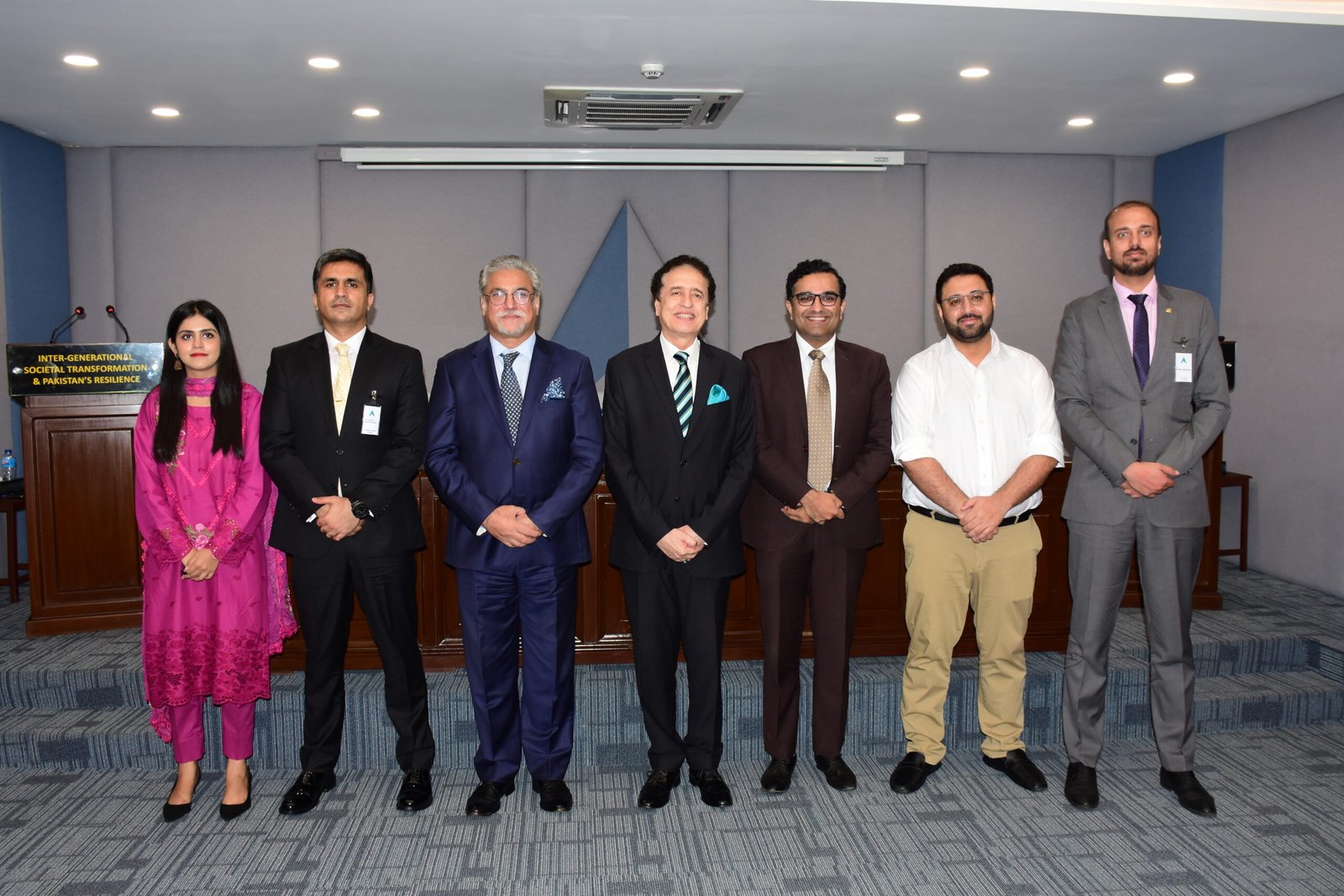
Key Takeaways
- Managing the Generational Divide
The generational divide in Pakistan presents a critical societal challenge with the potential for both conflict and positive change. Neglecting younger generations’ concerns and aspirations would be a missed opportunity in shaping the country’s future.
- Cultural Dilemmas
In an era of hyper-globalisation, Pakistani Gen Z faces a paradoxical situation, having to navigate traditional values with modern, global ones. Historical openness and diversity in Pakistan have declined, with contemporary society exhibiting increased conservatism and less acceptance of diverse viewpoints.
- Lessons from Bangladesh
The First Gen Z revolution in Bangladesh ended without substantive change, highlighting that a desire for change without a strategic vision is meaningless, as the new government has adopted the same old tactics.
- Negative Impacts of Digitalisation
Incidents like the Jaranwala church arsons, involving mostly Gen Z, highlight the dangerous mix of misinformation and digital connectivity that fuels impulsive, destructive actions. While the digital world expands interaction, it has also reduced meaningful engagement, eroding the sense of community and neighbourhood connection among younger generations.
- Gen Z’s Economic Priorities
The digital realm is akin to a natural habitat for Gen Z, who are more risk-acceptant and seek alternative economic opportunities, such as the gig economy and freelancing. They perceive reskilling and upskilling as integral to their economic survival.
- Citizenship, Patriotism and Brain Drain
Older generations in Pakistan have a strong sense of citizenship and pride, while the younger generation feels less connected to the country’s history and development. Political instability, economic hardship, and violence have disillusioned Gen-Z, who reject resilience as a solution to systemic issues. This also fuels the brain drain from Pakistan.
- Valuing Truth in History
The truth must be valued if progress is to be made. Pakistan’s version of history is often heavily edited, with up to 70-80% of the narrative distorted in some cases. Failing to address the truth can alienate younger people.
- Next-Gen Resilence
Resilence is valuable when it supports a greater goal, but it should not be viewed as the ultimate objective. It is beneficial as part of the journey, not as the final destination.
Policy Considerations
- Inter-Generational Dialogue and Community Bond
To restore Pakistan’s social cohesion, it is essential to revive the sense of community. Investing in community building can help counter social fragmentation. Additionally, fostering inter-generational dialogue through mentorship, collaborative projects, and inclusive policy-making will bridge the gap between older and younger generations, strengthening societal bonds.
- Prioritise Character Development in Education
Ensure that educational systems emphasise character development alongside skill development. Parents should model honest behaviour and in-still the right values in their children, aiming to nurture them into well-rounded individuals rather than solely preparing them for careers.
- Visual Communication for Understanding
To enhance intergenerational understanding and engagement, we must translate text into visual formats. Unlike older generations, who are more text-oriented, the younger generation primarily processes information visually.
- Leveraging Digital Literacy and Gen Z’s Potential
To combat misinformation, the state should promote accurate information and improve digital literacy across generations. Recognising Gen Z’s digital skills is key to addressing future challenges like cybersecurity, where their expertise can be invaluable.
- Hands-Off Digital Regulation
Governments need to adopt a hands-off approach to the digital realm. State regulations could disrupt or even dismantle delicate ecosystems or equilibria that are difficult to establish.
- Balancing Generational Dynamics
For a progressive society characterised by greater openness and acceptability, a balanced approach towards generations is needed. The older generation must adapt to the changes introduced by the younger generation, while the younger generation should respect their predecessors.
- Localising Intergenerational Frameworks
There is a need to revise the frameworks that explain intergenerational perspectives in the context of Pakistan. Such efforts align with broader decolonial objectives, aiming to establish terminologies relevant to local contexts rather than relying on those suited to Western experiences.
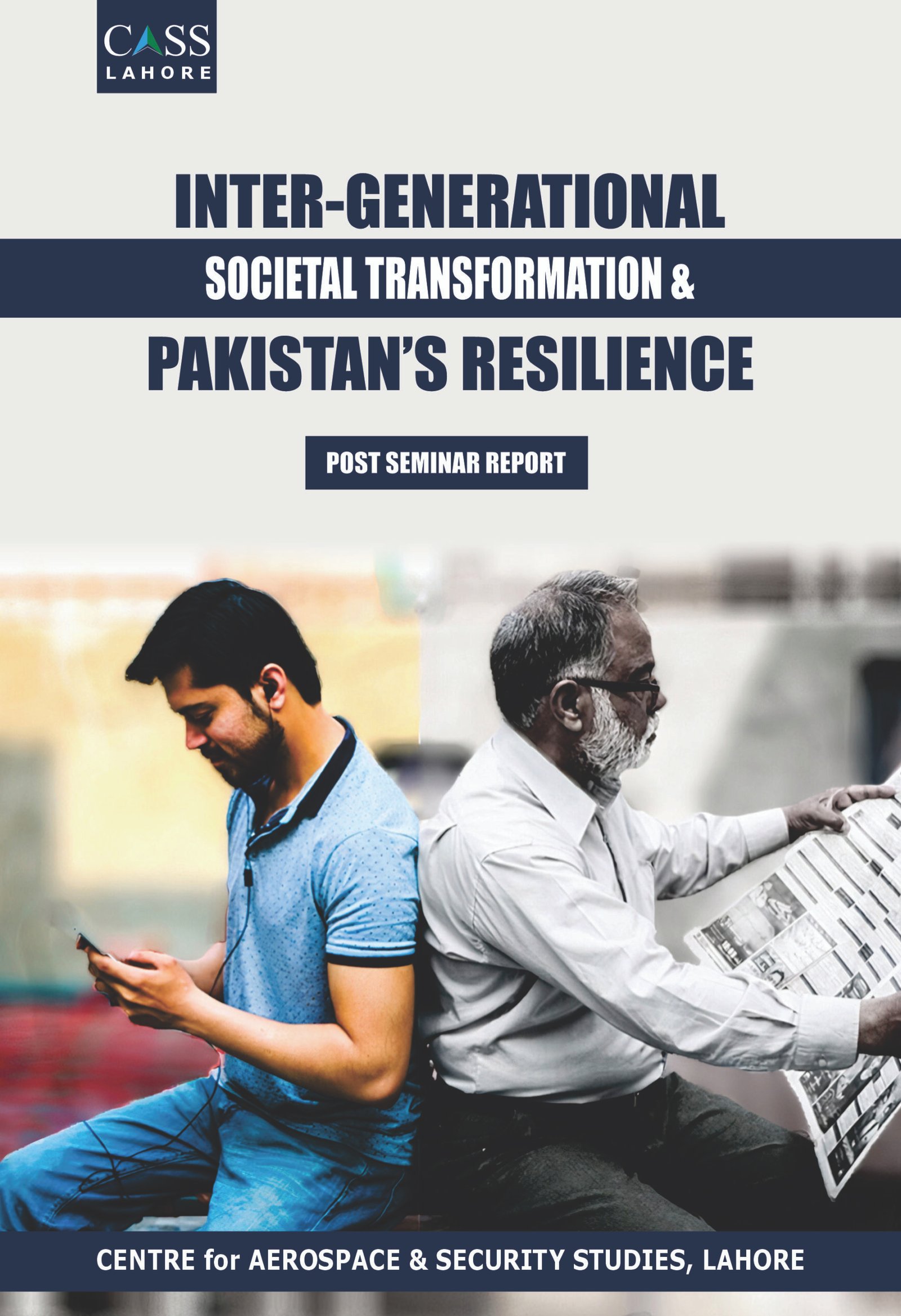
Post Event Report
A comprehensive report capturing expert analyses, strategic insights, key recommendations, media coverage, and event highlights.
Guest Speakers
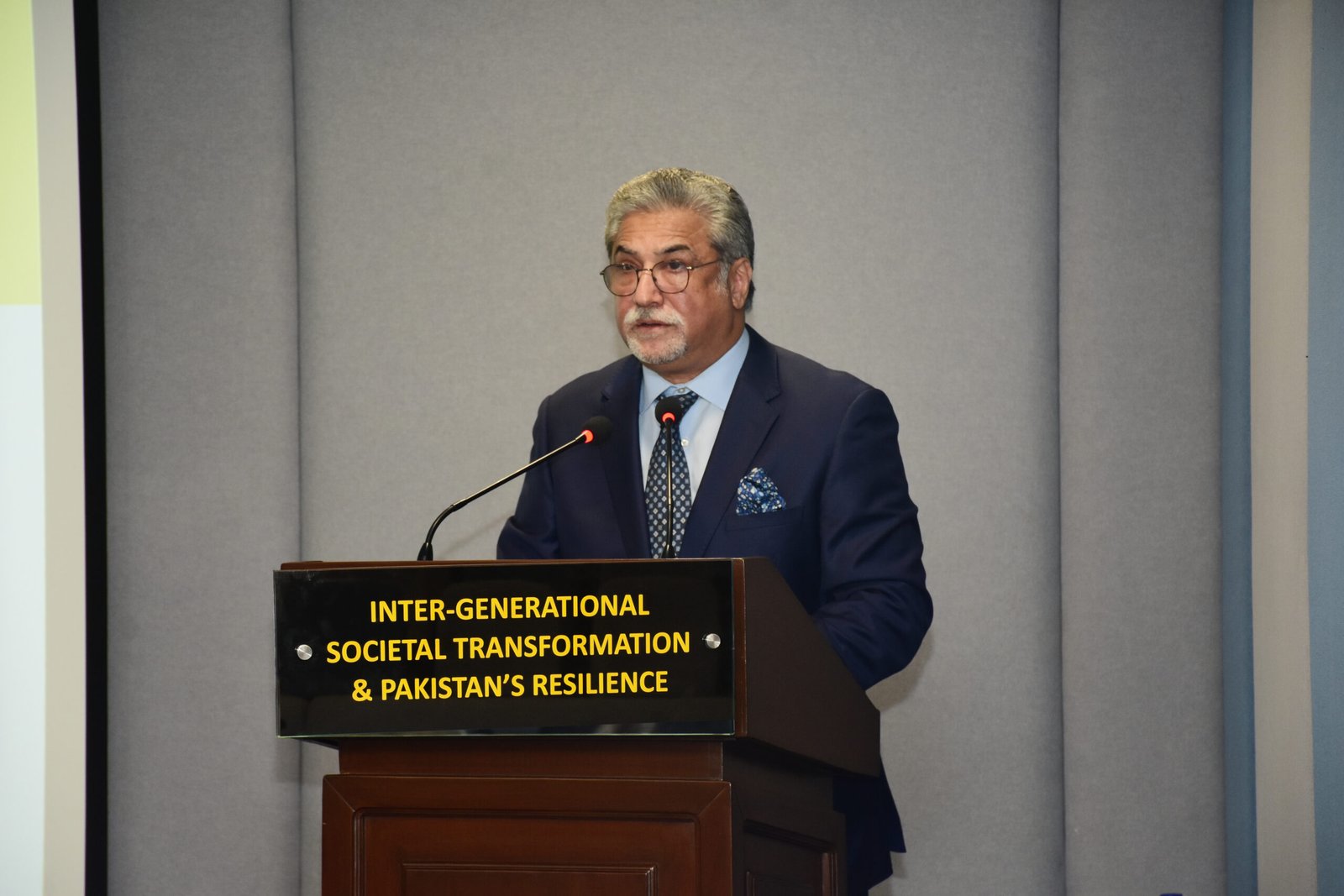
Mian Imran Masood
Former Minster Education, Punjab / Vice Chancellor University of South Asia
Mr Oves Anwar
Director, Research Society of International Law
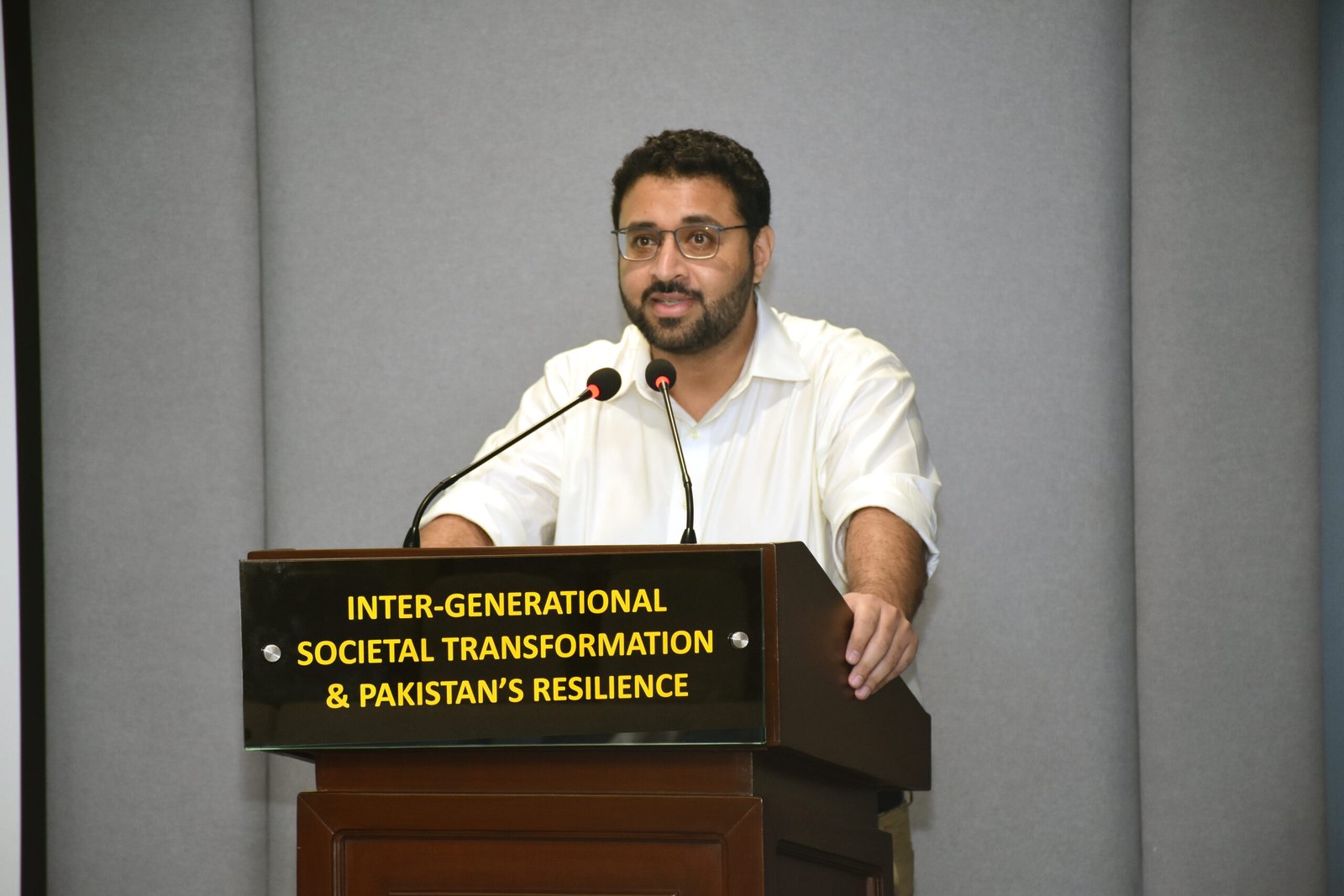
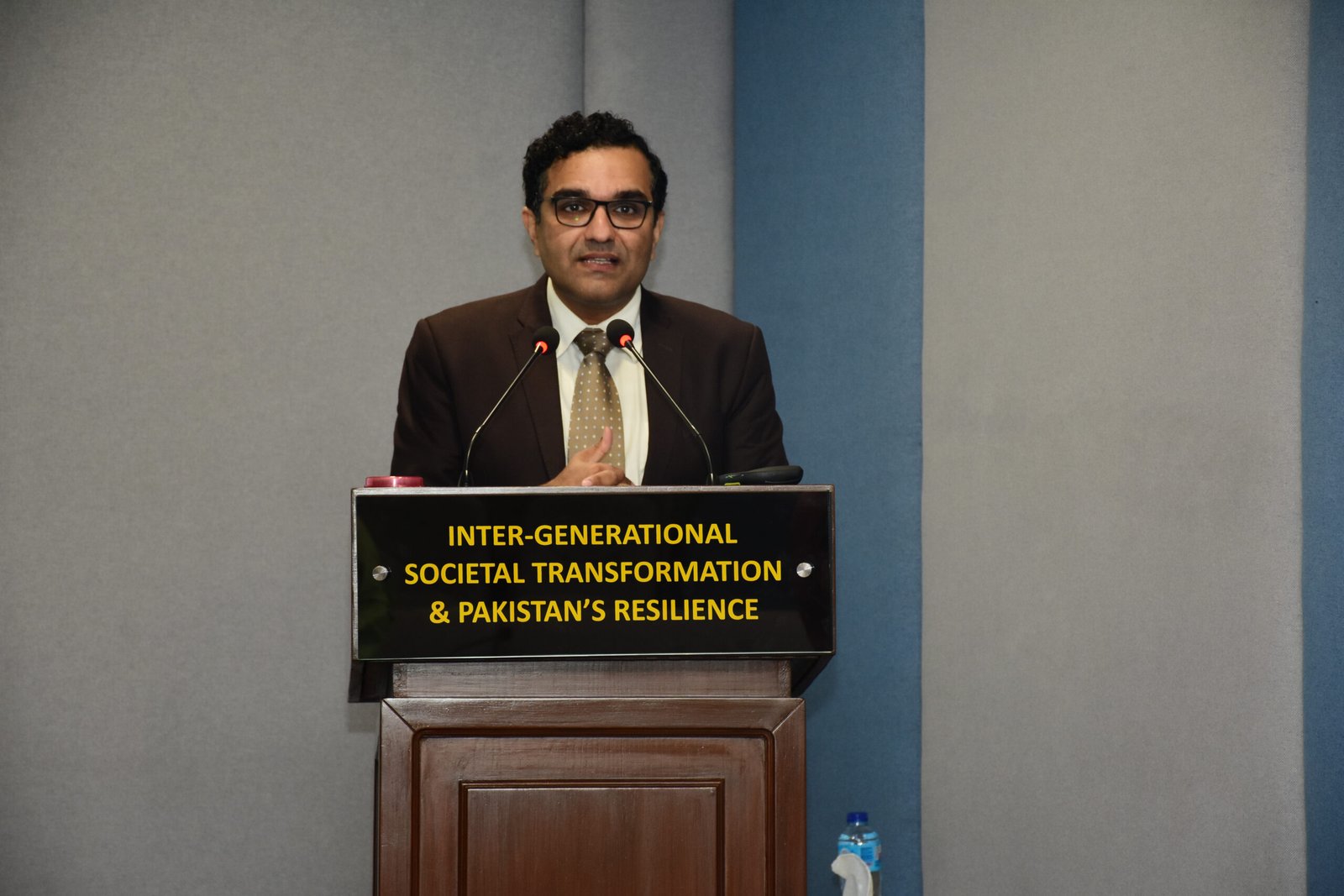
Dr Yaqoob Khan Bangash
Dean of Faculty of Humanities & Social Sciences Information Technology University
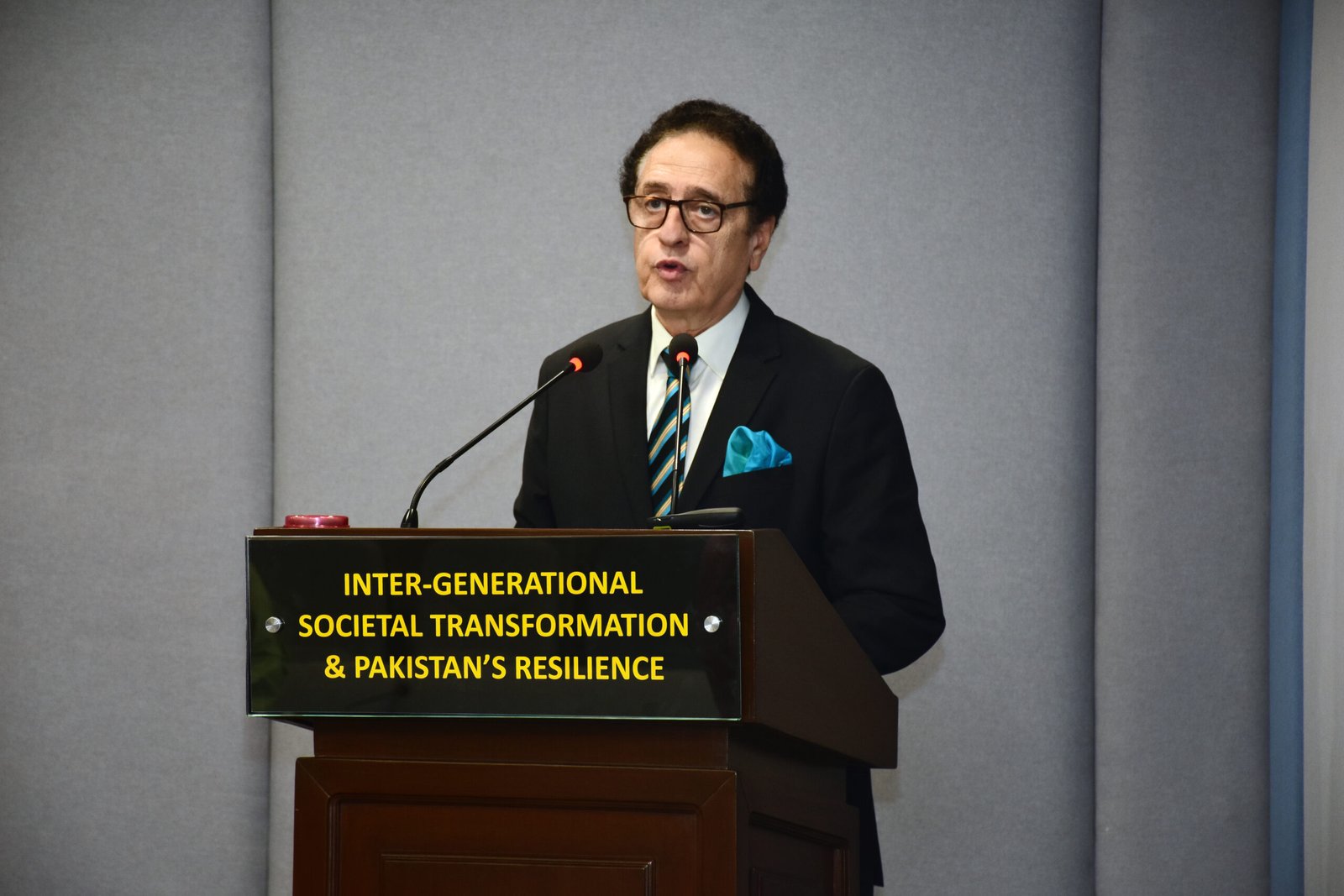
Event Chair
Air Marshal Asim Suleiman (Retd)
President CASS, Lahore
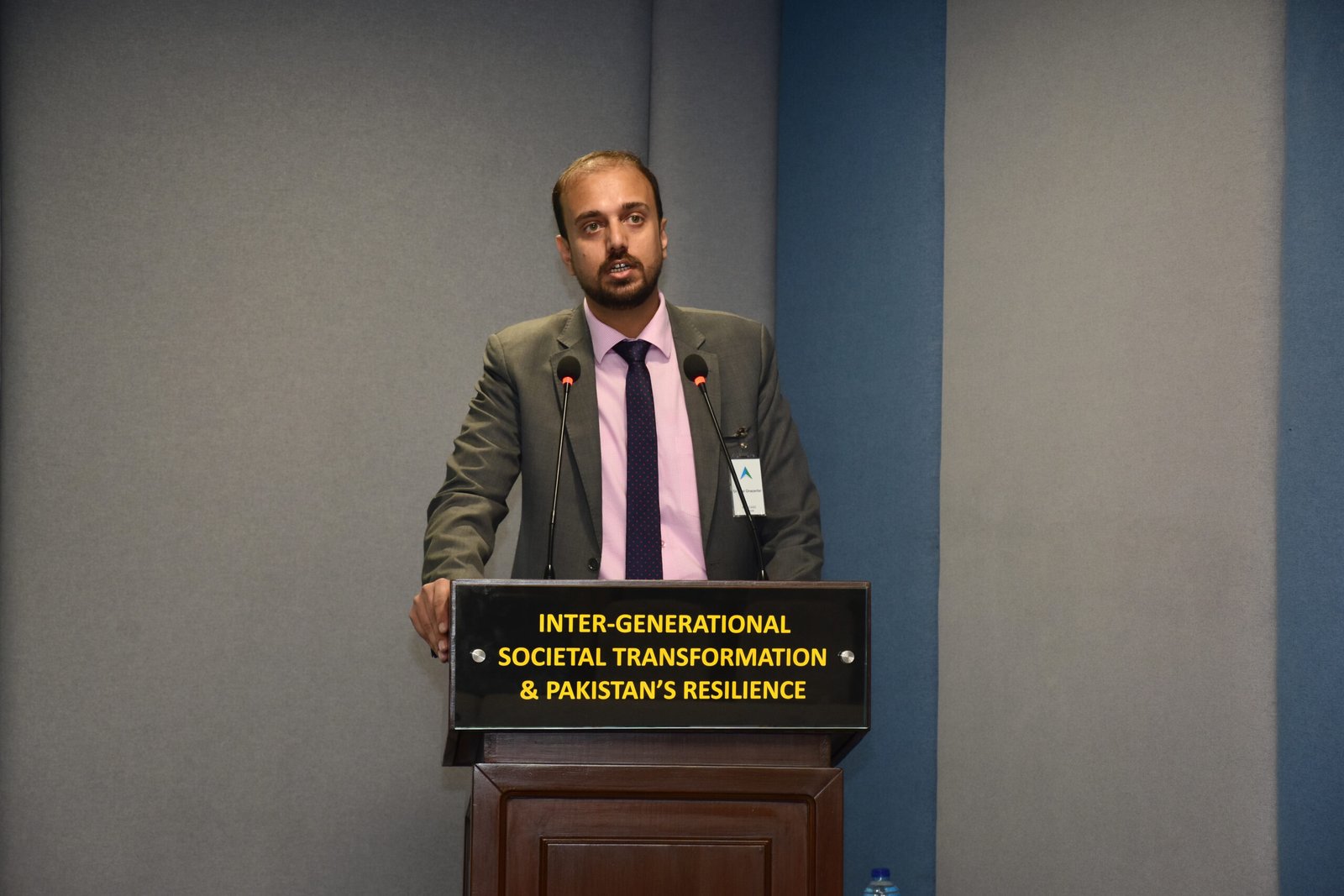
Event Coordinator
Dr Bilal Ghazanfar
Associate Senior Researcher, CASS Lahore

Master of The Ceremony
Naba Fatima
Researcher, CASS Lahore





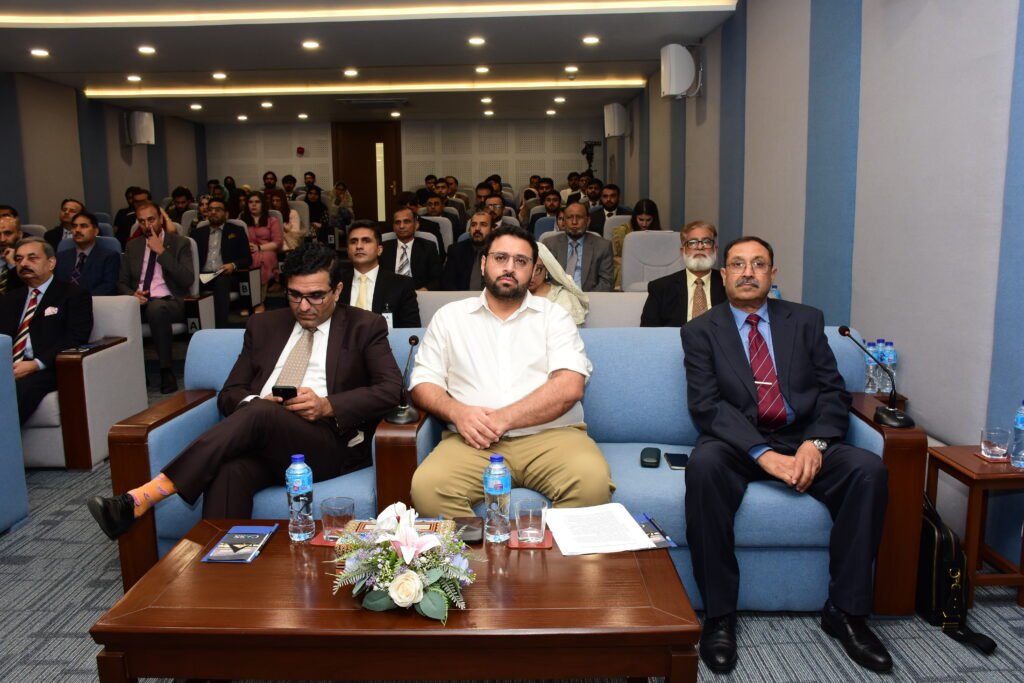


CASS LAhore

The Centre for Aerospace & Security Studies (CASS) was established in July 2021 to inform policymakers and the public about issues related to aerospace and security from an independent, non-partisan and future-centric analytical lens.
CASS Newsletter

@2025 – All Right Reserved with CASS Lahore.
- Home
- About Us
- Research Domains
- Publications
- Events
- Gallery
- Contact Us
@2021 - All Right Reserved. Designed and Developed by PenciDesign



